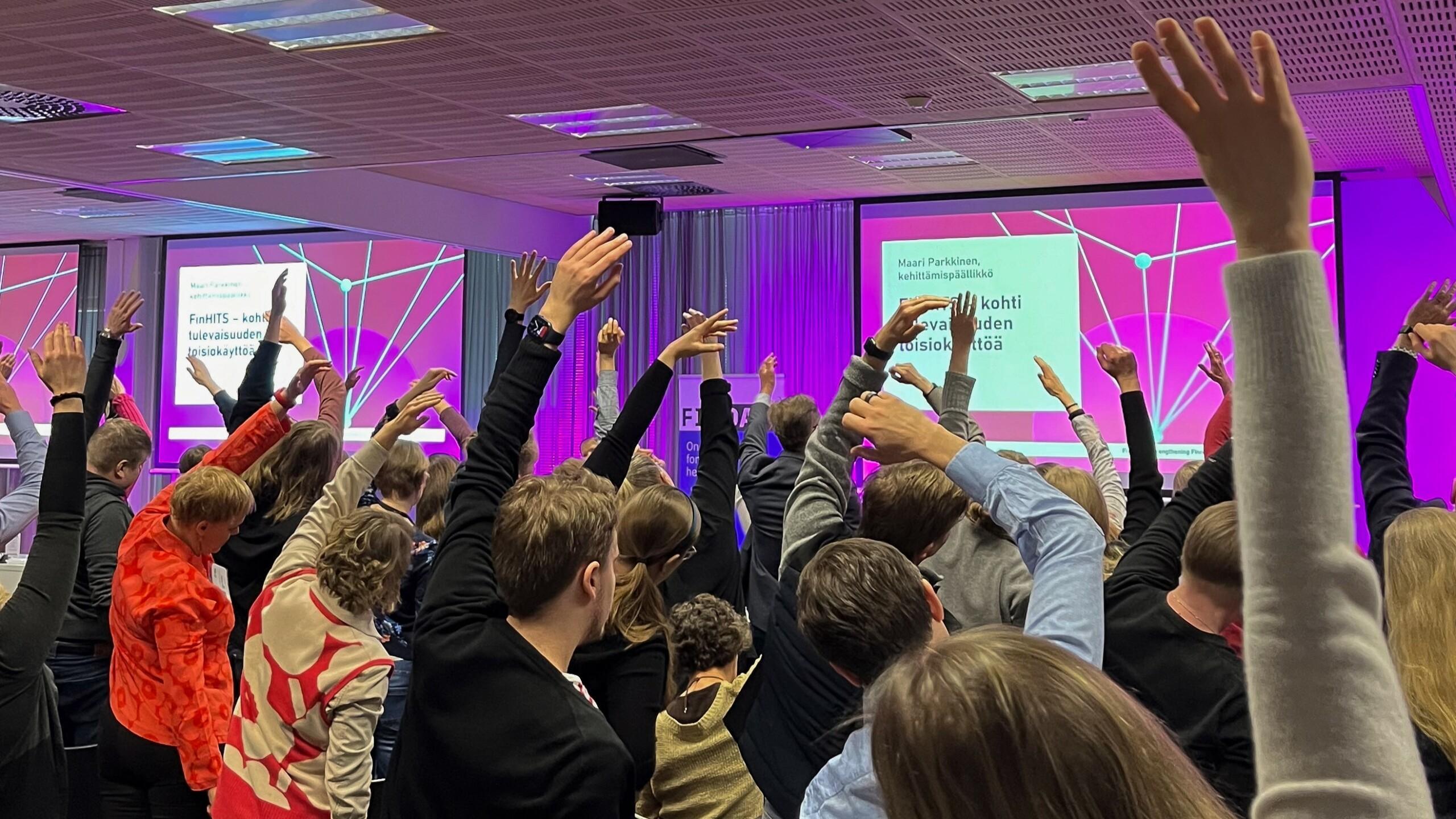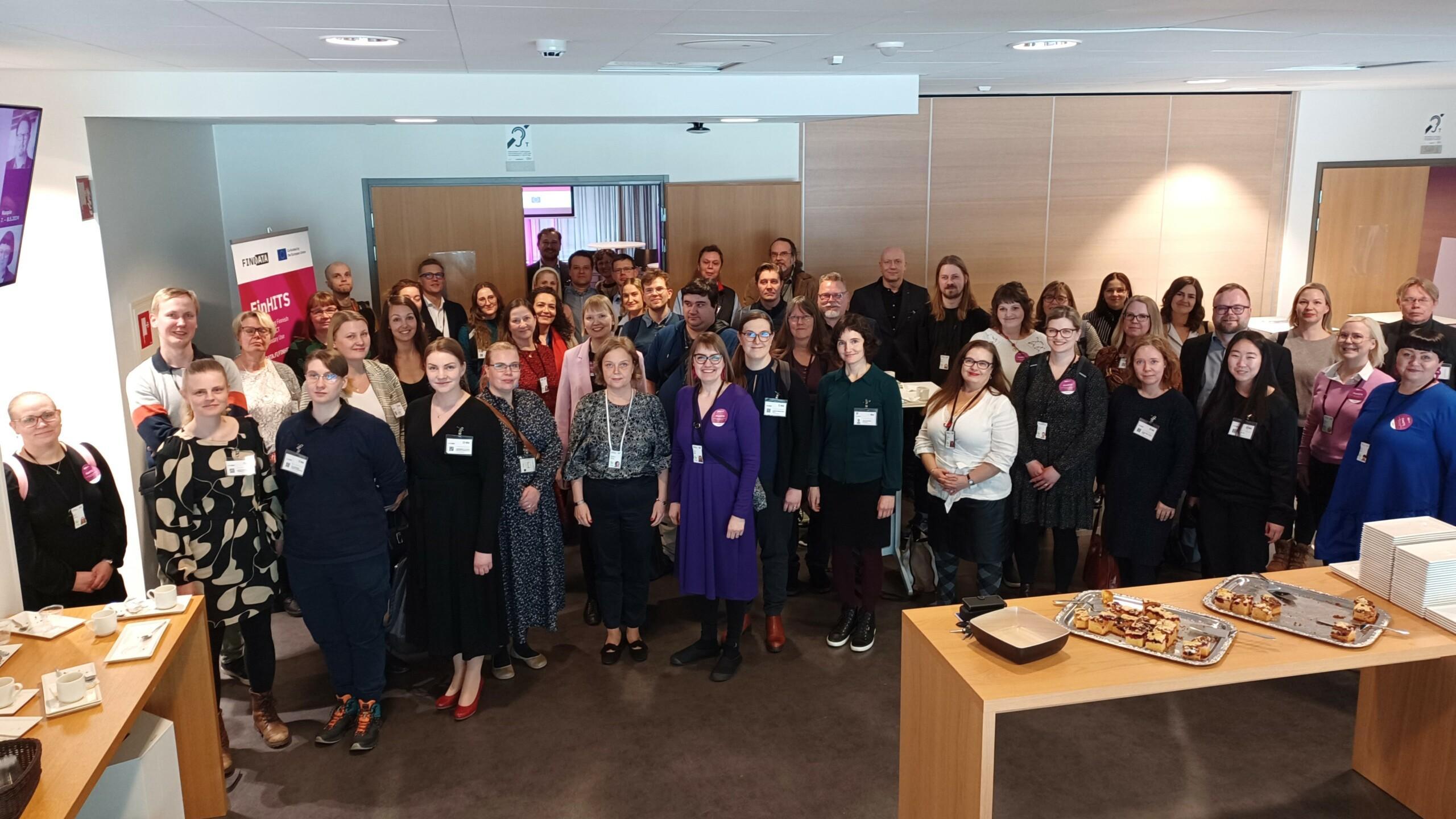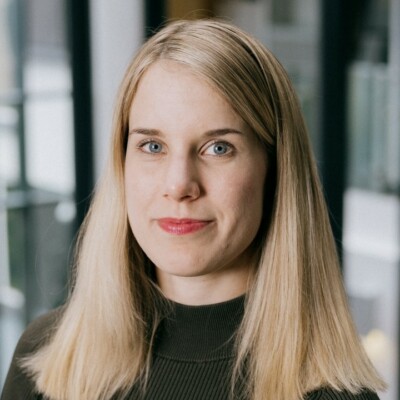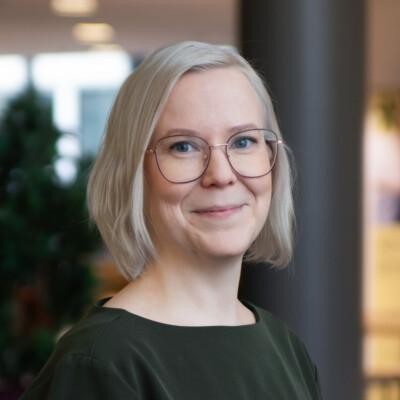A wide range of professionals working in the field of secondary use gathered for the FinHITS kick-off event on Friday 5 April 2024. Among the attendees were Findata’s customers, data controllers and other secondary use stakeholders such as service providers. The discussions highlighted the importance of collaboration.
The kick-off event of FinHITS was filled with an enthusiastic and collaborative atmosphere, as more than a hundred secondary use experts gathered together to plan future services and discuss the opportunities and challenges of secondary use of social and health data.
“It was great to see a room full of people interested in the development of secondary use services and the newest developments of the EHDS,” says Satu Sandholm, Project Coordinator of FinHITS.
First we got to hear the latest news on the development of the European Data Space (EHDS) and preliminary interpretations of its relevance for Finland. The participants were given a comprehensive presentation on the FinHITS project co-funded by the European Union, which aims to develop Finnish secondary use services over the next four years.
In the afternoon, a panel discussion brought a variety of perspectives to the table. Aaro Tupasela from the University of Helsinki, Aino Vesikansa from MedEngine, Arto Vuori from Kela, Enni Sanmark from HUS and the University of Helsinki and Johanna Seppänen from Findata shared their views on the strengths and challenges of the Finnish infrastructure and where we are heading with the EHDS.
The day concluded with a recap of the presentations, questions and discussions heard during the event by Jukka Lähesmaa, Senior Specialist at the Ministry of Social Affairs and Health.

Descriptions of available data plays a key role
Participants were able to contribute to service development plans in workshops. The four workshops focused on different themes: data quality, the secure processing environment, Findata’s e-service and helpdesk services.
In each workshop, the national data catalogue (Aineistokatalogi) came up as a topic for discussion.
“One workshop discussed the possibility of integrating the data catalogue into the application portal, while another workshop came up with the idea of a ‘Mega-catalogue’ that would also include data other than those covered by the Secondary Use Act and legislation on the use of data. These are exactly the kind of ambitious ideas that we were looking for,” says Sandholm.
High-quality and standardised data descriptions were seen as an opportunity to improve data quality, facilitate the processing of data permit applications and reduce the customers’ need for guidance.
Highlights from the workshops
Data quality
- The importance of data harmonisation: making use of data models, standards and machine learning
- Channel for communication: a tool to report data quality, shortcomings, possibility for iterative quality improvement
Development of Kapseli processing environment
- Adding automation for verifying the anonymity of results
- More agile customisation of processing environments and streamlined access management.
Development of Findata’s e-service
- Structured application where extractions need only be described once
- A portal linked to the data catalogue, where the extractions are described based on the data stored in the catalogue
Development of advisory services and an international perspective
- Leveraging automation and AI in advice services: automating the start of the advice pathway to refine the information needs, and, if needed, directing the client to advice with clear questions
Tackling challenges with cooperation
Both in the workshops and in the coffee-table discussions, the importance of collaboration was a topic of discussion.
“The participants valued the opportunity to connect with others working within the field of secondary use,” tells Maari Parkkinen, Development Manager of Findata. “Many said that getting to know each other and brainstorming together makes it easier to continue collaborating in the future.”
Sandholm agrees that it is essential to take into account different perspectives and make compromises. This will become even more important as the EHDS implementation approaches:
“We all face many of the same challenges and it is therefore important that we work together to solve them. Having a unified national vision will also facilitate the implementation of the EHDS.”
The next FinHITS event will be a webinar in November, which anyone interested can attend. The collaboration continues during the project, for example in smaller test groups where participants will be able to test the services being developed. Events in English will also be organised.
“We would like to thank the participants for their activity! Not only did we get support for our current plans, but also a lot of new ideas that we will continue to develop as the project progresses,” says Parkkinen.

Contact


Read more
Do you want the latest news on FinHITS straight to your e-mail? Join our mailing list!

Co-funded by the European Union. Views and opinions expressed are however those of the author(s) only and do not necessarily reflect those of the European Union or European Health and Digital Executive Agency. Neither the European Union nor the granting authority can be held responsible for them.

